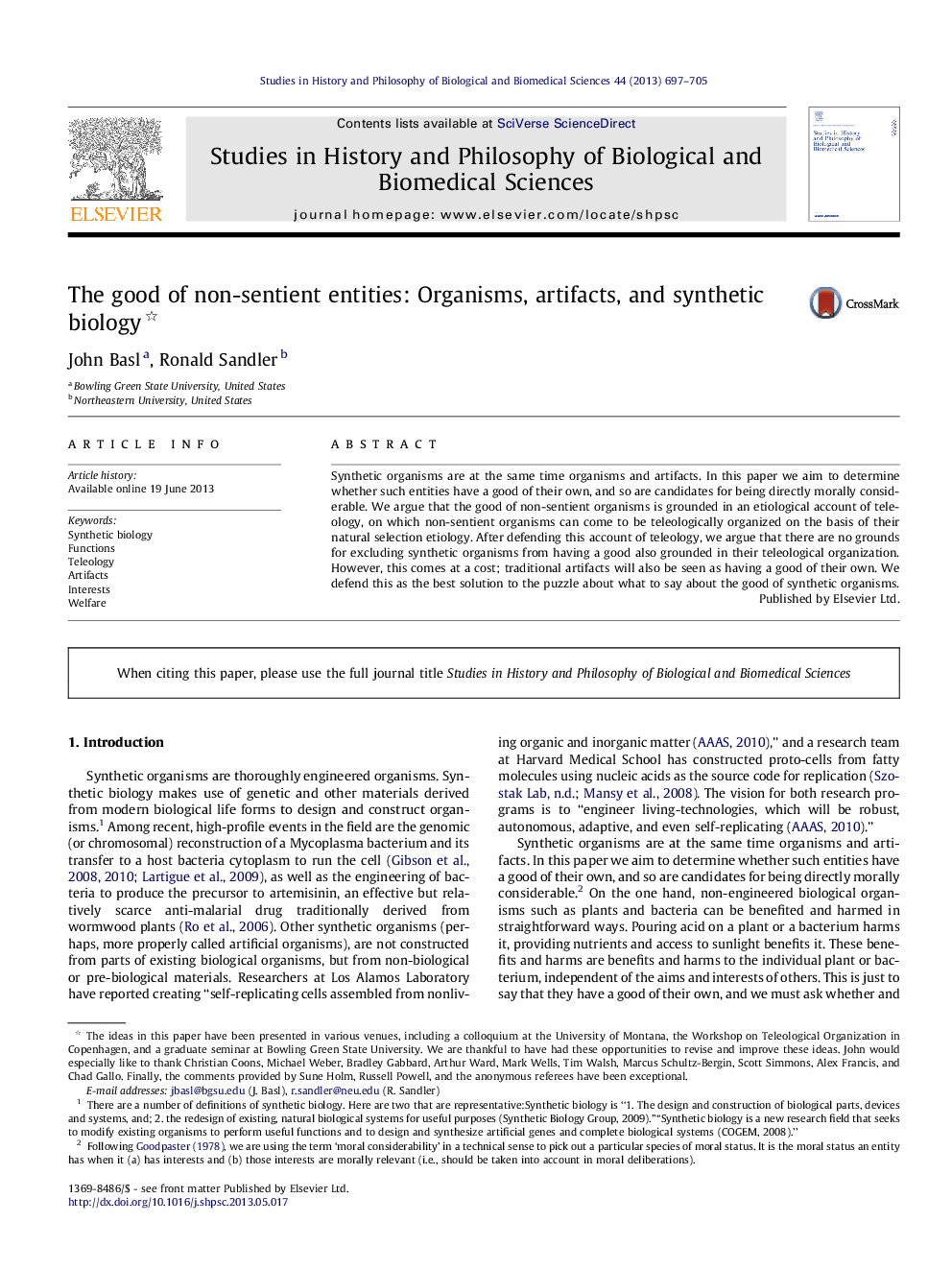| Article ID | Journal | Published Year | Pages | File Type |
|---|---|---|---|---|
| 7552823 | Studies in History and Philosophy of Science Part C: Studies in History and Philosophy of Biological and Biomedical Sciences | 2013 | 9 Pages |
Abstract
Synthetic organisms are at the same time organisms and artifacts. In this paper we aim to determine whether such entities have a good of their own, and so are candidates for being directly morally considerable. We argue that the good of non-sentient organisms is grounded in an etiological account of teleology, on which non-sentient organisms can come to be teleologically organized on the basis of their natural selection etiology. After defending this account of teleology, we argue that there are no grounds for excluding synthetic organisms from having a good also grounded in their teleological organization. However, this comes at a cost; traditional artifacts will also be seen as having a good of their own. We defend this as the best solution to the puzzle about what to say about the good of synthetic organisms.
Related Topics
Life Sciences
Agricultural and Biological Sciences
Agricultural and Biological Sciences (General)
Authors
John Basl, Ronald Sandler,
